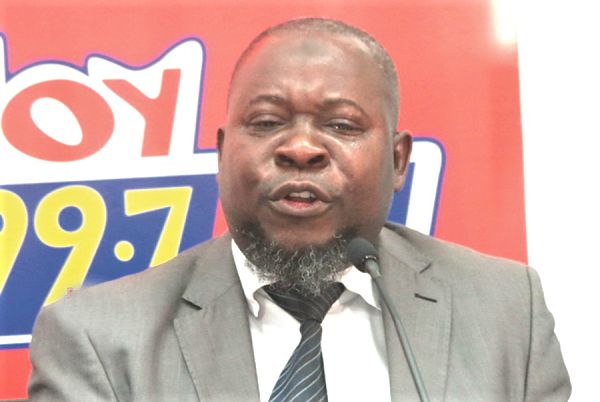
Politicians infiltrating BoG – Economist observes
The Bank of Ghana (BoG) is on the verge of losing its autonomy to partisan politics after politicians have “sadly infiltrated” the central bank with their appointees and activists, an economist and Research Fellow at the Institute for Fiscal Studies (IFS), Dr Said Boakye, has observed.
He mentioned the resignation and subsequent appointment of governors and their deputies and the dissolution and reconstitution of the bank’s board after a change in political power as some of the actions that indicate that the central bank is losing its autonomy.
Describing the development as a “sad spectacle,” Dr Boakye said it could be the peak of a sustained erosion of institutional independence in the country.
“Sadly, this thing is going to continue because no government will come and say I am going to work with the previous governor anymore because the stage has been set,” he told the GRAPHIC BUSINESS on January 18, 2019.
He said this after a former Second Deputy Governor, Dr Asiama, alleged in a January 16, 2019 press statement that he was asked by the Finance Minister, Mr Ken Ofori-Atta, to resign to allow the President to appoint his own person.
“This robs the country of an independent institution that can provide expert advice on economic issues devoid of partisan intentions,” he added.
Already, Dr Boakye said he had observed that some governors had recognised that “they are being appointed politically and for that matter, they have started behaving as if they are politicians.”
Resigning on good deal
Since 2009, three governors (the late Kwesi Amissah-Arthur, Dr Henry K Wampah and Dr Nashiru Issahaku) and two deputies (Dr Mahamudu Bawumia and Dr Johnson P. Asiama) have resigned.
Two boards (2009 and 2017), which were appointed by either the New Patriotic Party (NPP) and National Democratic Congress (NDC) administration, respectively, have also been dissolved and new ones constituted.
This was in spite of the fact that the Bank of Ghana (amendment) 2016 (Act 916) requires that governors and boards be allowed to serve their full terms.
The Act extended the tenure of board members from three years to four years after which they are eligible for reappointment. Governors and their deputies are also to be appointed for a period of four years after which they are eligible for reappointments.
The worse to expect
“When they are retiring them (the governors and deputies), they give them a good deal. Now, we are only waiting for a time when they will kick them out and not give them anything but that may happen soon,” Dr Boakye said.
Although the board members have not been paid their allowances, the governors and the deputies resigned on their conditions of services, according to GRAPHIC BUSINESS sources.
Beyond robbing the central bank of its sacred autonomy, the economist said the development also deprived the country of an independent and objective institution that would serve as an indirect check on the government.
As a central bank, he said “the BoG is supposed to be composed of non-partisan experts who think along the lines of expertise.
So, if the government is doing something that is not right, the BoG can advise; both overtly and covertly so that the right thing can be done.
Now, if the BoG is brought onboard as part of the political institutions, either directly or indirectly, then they will be in the same boat and they will think together.
If the government is falling, they fall together.”
How it started
While observing that Dr Asiama’s allegations, which portend interference in the affairs of the BoG by the government, were not new, the Research Fellow at IFS said his personal observation showed that the central bank started losing its autonomy around 2008.
He traced what he referred to as a gradual but sustained attack on the central bank’s independence to when Dr Bawumia, then the Second Deputy Governor, was selected as running mate to then candidate Nana Addo Dankwa Akufo-Addo but remained in his position at the central bank until 2009.
“For me, it started around 2008, when Dr Bawumia was asked to step down and he delayed but later had to.
Since then, the BoG independence has been thrown to the dogs,” he bemoaned.
Bank of Ghana, a creation of Article 183 of the 1992 Constitution, is insulated from political interference to allow it to play its key role as adviser on fiscal matters to the government.
The governor and the deputies are appointed in consultation with the Council of State and can only be removed on the same grounds and in the same manner as a Justice of the Superior Court of Judicature, other than the Chief Justice, may be removed, according to the Constitution.
How to stop it
Asked how the country could stop the political interference in BoG activities, Dr Boakye said “we need a good leader as president, to start with.”
He said a good and principled leader would ensure that institutions, not individuals, “are allowed to work.”